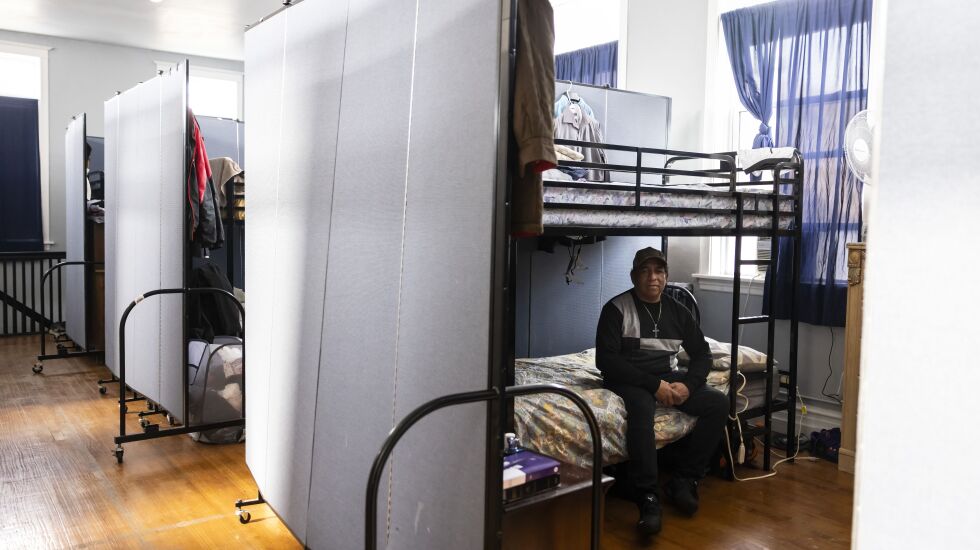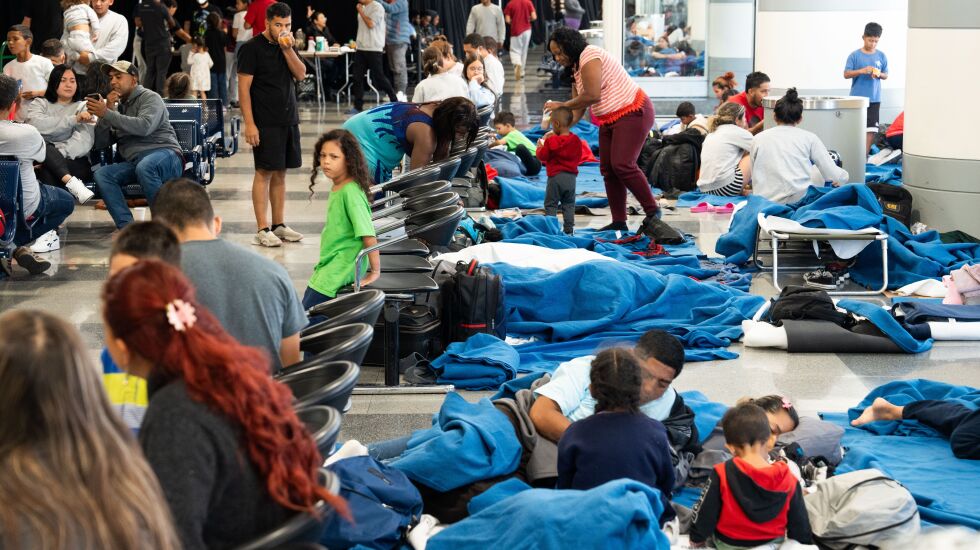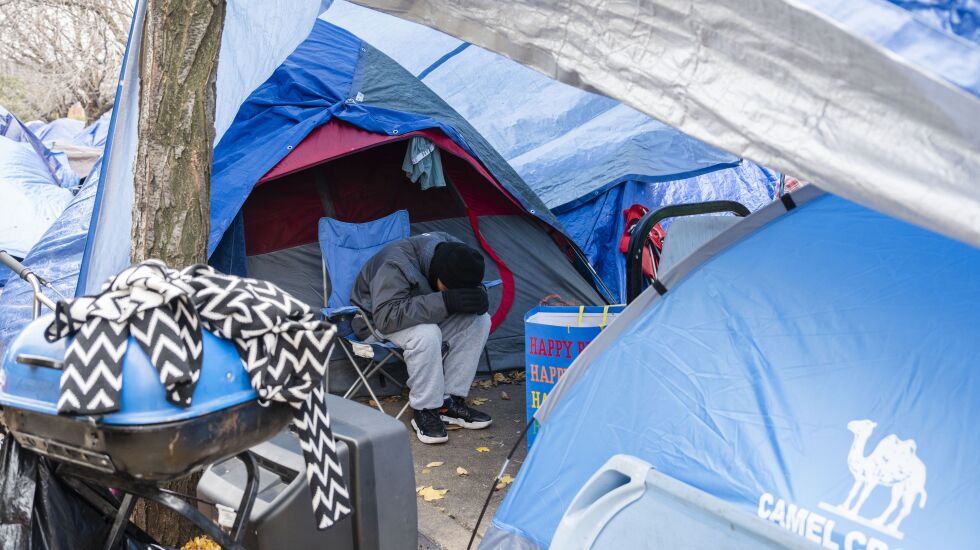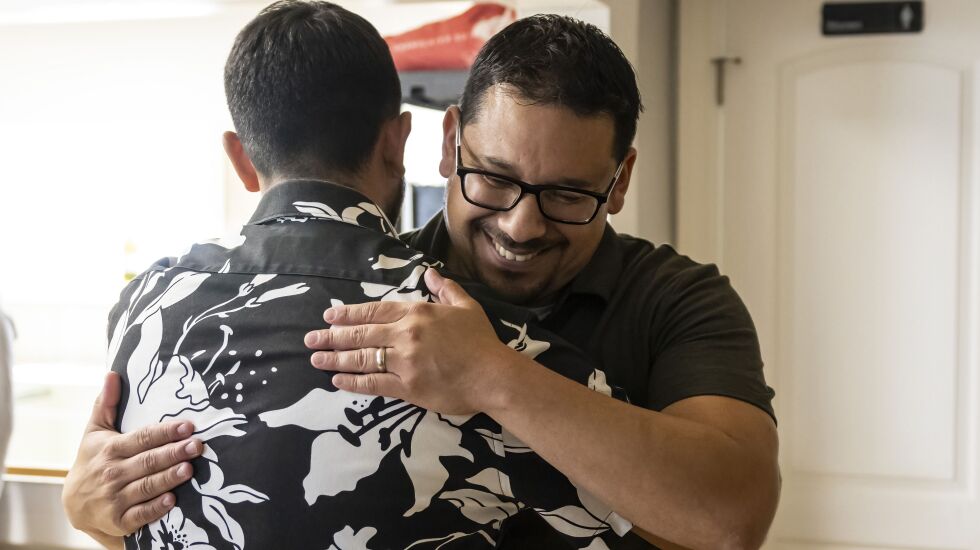
Edgar Nuñez Aponte, a recent migrant arrival, has an earthy sense of humor that belies the reasons why he came to Chicago. The gaping hole where his four front teeth should be provides a clue.
“They knocked them out,” Aponte, 52, told me when I was out on assignment recently. He motioned as if he were hitting something with the butt of a rifle.
The Venezuela native then told a highlights-only story of cooking for neighbors in his barrio, authorities seeing that as an anti-Chavista action and then being beaten by police so badly and hospitalized for so long that his family took him for dead.
I asked him if he wanted to return, and gesturing to his teeth, he replied: “Oh, I could never go back.”
What a tale, I thought. Too bad it had nothing to do with the story I was trying to tell, one about a church initiative to resettle migrants outside the city’s system.
Edgar had little to say about that, so I mostly relied on his new housemates. Still, it was his story I was stuck thinking about. It was the one that I rolled over in my sleep to jot a line down about before dozing off again.

This is how it’s been right from the start while covering the migrant crisis’ impact on Chicago. Over 30,000 migrants have arrived in the city since August 2022, by bus and by plane, and mainly from Venezuela. Resettling them has been a tremendous undertaking for the city, and any effort aimed at resolving the crisis felt worth reporting on, especially as thousands were left camping at police stations.
I’ve heard things I’ve had no idea what to do with. They can be hard to verify from Chicago, but they’re compelling and explain why someone would leave their home for such a difficult journey. I sometimes worry I’m missing the bigger picture by not following up on them.
Escaping real threats of violence
On this beat, a person might show me home videos of the beach where tourists used to flock and where they drove a boat until they crossed the wrong person and had no choice but to leave altogether.
Luis, a migrant I met at the Near North District police station, was “lucky” like that, as he told me.
Back home, he had a steady remodeling business. As Venezuela spiraled into crisis, that decent business suddenly looked like a potential income stream for a gang looking for a shakedown target.
If he didn’t cough up the money, he was told, they would “chop [him] into pieces.” Dutifully, he reported the gang to police, who, he figures, then told the gang. Soon, desperados on motorbikes were riding through the alleys around his house asking for him.
Luis, 36, spent the next several months at home, in hiding.

When the threat of violence comes after unwanted attention from someone in power, it can be even harder for people to explain what they’re fleeing.
Andrea Rivas, another migrant I met at the Near North police station, told me she, her partner and their two kids fled Caracas after a neighbor, who happened to be a police officer, began making sexual advances.
When she rejected him, he started popping off shots at their house.
I asked if she had considered reporting him. Her glance told me I had no idea what things were like back home.
“If I had tried to report him, we would have had even more problems,” said Rivas, 26.
Her partner then ended the conversation before I could go any further.
Rivas wasn’t wrong to look at me like I was a fool. Before hearing these stories, I didn’t appreciate how bad things had become.
‘You need to go talk to them’
I had certainly read about it — decades of dictatorship, widespread shortages and frequent blackouts. And I’d seen stats — a falling gross domestic product unlike anything seen in a country not at war and significantly worse than the Great Depression.
But hearing from someone actually at the end of a gross abuse of power is something else.
When I was out talking with new arrivals about Lake Michigan, I met one guy, Ever, who told me a story like that.
When we first started talking, I knew the story I was looking for then was about Lake Maracaibo. He wasn’t from that part of the country, so, frankly, I wasn’t that interested in talking.
But as photographer Anthony Vazquez was taking photos of people I had interviewed, we chitchatted. He told me a story unlike anything I could imagine happening here.
He had left the country, he said, because his family was being hunted by a government official. It all started, he said, with his sister-in-law having an affair with that official.
His brother found out, and the simple solution this official came to was murdering him.
The remaining siblings, aside from their elderly parents, went on the lam, and relatives are now spread out throughout the Americas, all the way up to Chicago.
It could all be a lie, for all I know, but it’ll still be on my mind until I know for sure.
These are just a few of the kinds of stories I’ve heard.
At the end of interviews, often I try to ask a bow-tying question like, “What can people do to help?”
The Rev. Jonathan de la O, the pastor at the church where Edgar is staying, gave an answer that at the time I thought was unhelpful, but now more and more, I find it to be insightful.
His message to readers was to not just read about migrants but to try and meet some.
“You need to go talk to them,” he said. “Feel their laughter, feel their handshake.”
Not all are coming under such desperate circumstances, but many are, and once you hear it firsthand, it’s hard to quit thinking about.

Michael Loria is a staff reporter for the Chicago Sun-Times via Report for America, a not-for-profit journalism program that aims to bolster the paper’s coverage of communities on the South Side and West Side.







